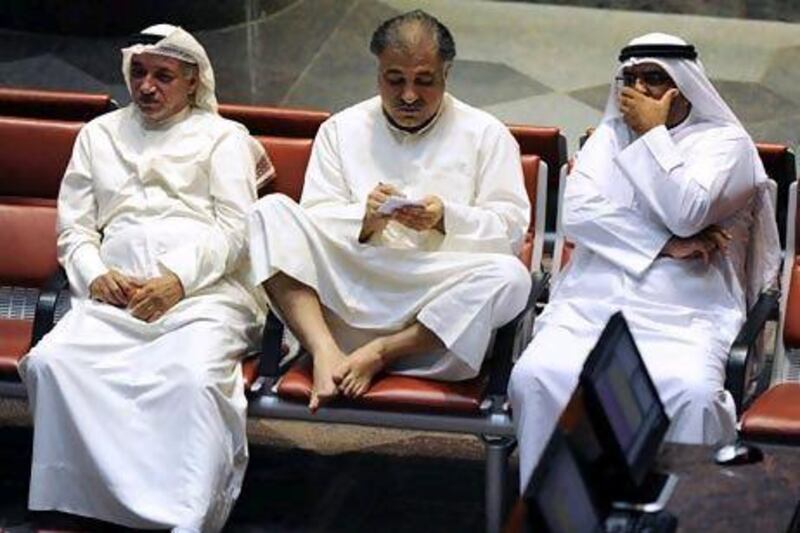Gulf markets declined yesterday on lacklustre volumes related to the summer lull, when many investors leave the country on holiday.
More Business news: Editor's pick of today's content
Industry Insights // Moroccan property takes a tumble Morocco's holiday home market was devastated by regional events, including a terrorist bombing, leaving several large-scale developments stalled. Read article
EU emissions tax set to push up flight prices Airlines could be forced to pass on higher costs to passengers as the European Union's emissions trading scheme comes into effect in January. Read article
1,000 homes to boost sluggish sales market Aldar Properties has started handing over homes in Al Zeina on Raha Beach, one of the largest developments in the city open to international buyers. read article
[ More business ]
The Dubai Financial Market (DFM) General Index was down 0.7 per cent to 1,533.23, its lowest in a week. The Abu Dhabi Securities Exchange (ADX) General Index fell 0.9 per cent to 2,707.23, after Etisalat reported yesterday a 15 per cent drop in second-quarter profit to Dh1.59 billion compared with the same period last year. The UAE telecommunications operator holds the largest weighting on the Abu Dhabi index.
Traded value on the DFM reached Dh79.8 million versus the 20-day average of Dh95m. On the ADX, traded value reached Dh82.3m, down from the 20-day average of Dh91m.
"That number reflects the fact that most investors are away. July is the travel month for everyone. Most of the investment community will want to be back by August for Ramadan," said Mohammed Ali Yasin, the chief investment officer at CAPM Investment in Abu Dhabi.
"The markets are under pressure, and negative sentiment from the US is not helping. Across the board we see a lack of appetite for buying," he added. For weeks, Timothy Geithner, the US Treasury secretary, and other administration officials have been warning of an economic "catastrophe" if the US$14.3 trillion debt ceiling, which caps the amount Washington can borrow, is not raised by August 2.
Elsewhere in the region: Kuwait's measure declined 1.5 per cent to 5,973.10, the lowest since 2004; Bahrain's rose 0.1 per cent to 1,318.46; Oman's was unchanged at 5,979.72; and Qatar's dipped 0.5 per cent to 8,441.40.






